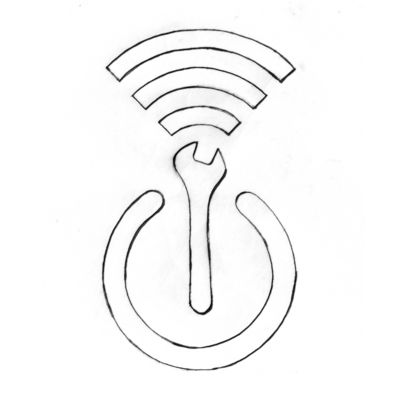A bi-weekly talk show by The Restart Project, plus a monthly documentary series produced by brilliant podcaster Dave Pickering, based on fixing triumphs, heartbreaks and wisdom shared at our community repair events – called Restart Parties – here in London. We go into real depth about good and bad design, obstacles to repair of electronics, emotional aspects of ownership, environmentally irresponsible business models, and the “end of life” of our gadgets. This podcast is for you if you'd like to fix your relationship with electronics. Let’s rethink, restart.
https://therestartproject.org/podcast/
Restart Radio: DIY radiation monitoring with Safecast and ransomware attacks
This week, we talk about two kinds of risk: one environmental, and one technical. From Citizen Science projects to community-run operating systems, we examine how we can have more of a say in how to keep ourselves safe.
The Fukushima-Daiichi nuclear power plant, destroyed by the dual earthquake-tsunami disaster of 2011, continues to leak dangerous levels of nuclear radiation. In the aftermath of the catastrophe, citizens quickly noted the absence of localised data that would signify if their environment was safe. The global supply of geiger counters, which give readings of radiation levels, sold out in twenty-four hours. So a group of people decided to take the issue into their own hands, designing a kit with open-source software that anyone in the world could replicate: the project was called ‘Safecast’.
Today, Safecast has surpassed all previous data-sets about environmental radiation combined. Because it exists in the public domain, it is used as a trusted source by reporters, academics, nuclear governing bodies, and even state governments.
The ‘bgeigie’ is designed to be easy for anyone to assemble: all you need is a few hours to spare and a soldering iron. Users can buy the parts online from the Safecast website, or source them themselves, using the freely available instructions and software package. Born out of hackerspace culture, the lifeblood of Safecast is it’s community of volunteers and users. Online platforms allow them to share tips on assembly, repair and maintenance of the ‘bgeigies’.
And unlike with other event-related technologies, where the hype dissolves and leaves behind thousands of disused devices, the fact that users have built the device themselves means a much higher rate of usage. We tend to care more for the things we make ourselves.
Excess nuclear radiation may not currently be a huge problem in London, but citizen science technologies can be used for a huge range of environmental risks. Plume Labs are working on a piece of hardware paired with mobiles that enables citizens to become part of a local, dynamic air pollution sensor network.
Finally, we talk about the scariest tech news of the week: the Wcry ransomware attack that brought NHS trusts and hospitals to a halt all across the UK. The story of how the attack came to happen is a complex combination of economic, political and technical factors, which points to serious problems in the way that these systems currently function. We talk about how average computer users can protect themselves from ransomware, as well as the obligations that governments and corporations have to protect the infrastructure that keeps our societies running.
Links:
- Safecast
- 04.51: Tokyo Hackerspace
- 14.24: Plumelabs
- 22.53: Zeynep Tufekci: The World is getting hacked. Why don’t we do more to stop it?
- 25.33: Mircosoft patch for Windows XP vulnerability
The post Restart Radio: DIY radiation monitoring with Safecast and ransomware attacks appeared first on The Restart Project.
